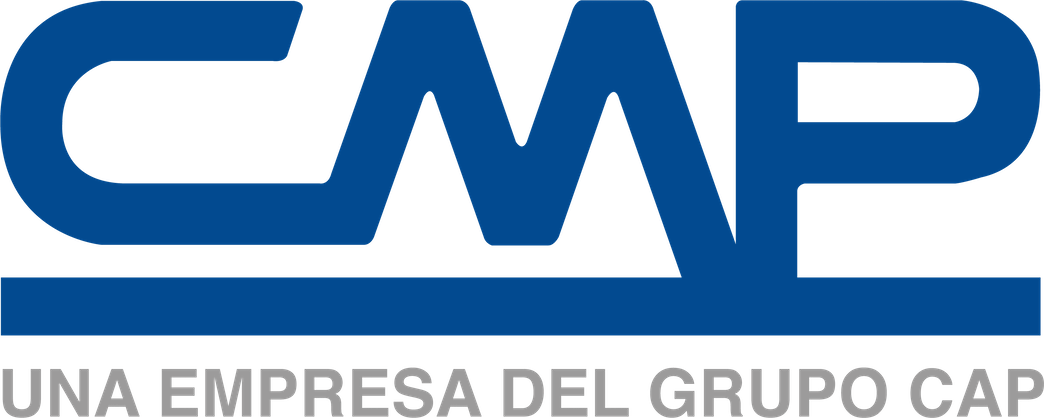ALFADECA &
VoluntariaDo
corporate
Consolidating reading and writing skills among children in the region
The Alfadeca program is a methodology born from international experience and how a child's brain learns to read and write. It is developed under the need to enhance the skills of teachers to achieve impact results that allow children to learn to read and write in 1st grade.
In the context of the pandemic and the constant difficulties encountered by educational communities to connect optimally with their students, Compañía Minera del Pacífico (CMP) and the Sara Raier de Rassmuss Foundation joined forces in 2020 to bring the Alfadeca program to the regions of Atacama and Coquimbo. In this way promoting literacy skills in elementary school children.
Thus, through counseling and training spaces, the renowned program was implemented in classrooms of the Mireya Zuleta and José Miguel Carrera schools in Huasco and Alejandro Noemí Huerta in Freirina. Subsequently and based on great results, the program grew in the territory, adding the Pedro Pablo Muñoz school in La Higuera.
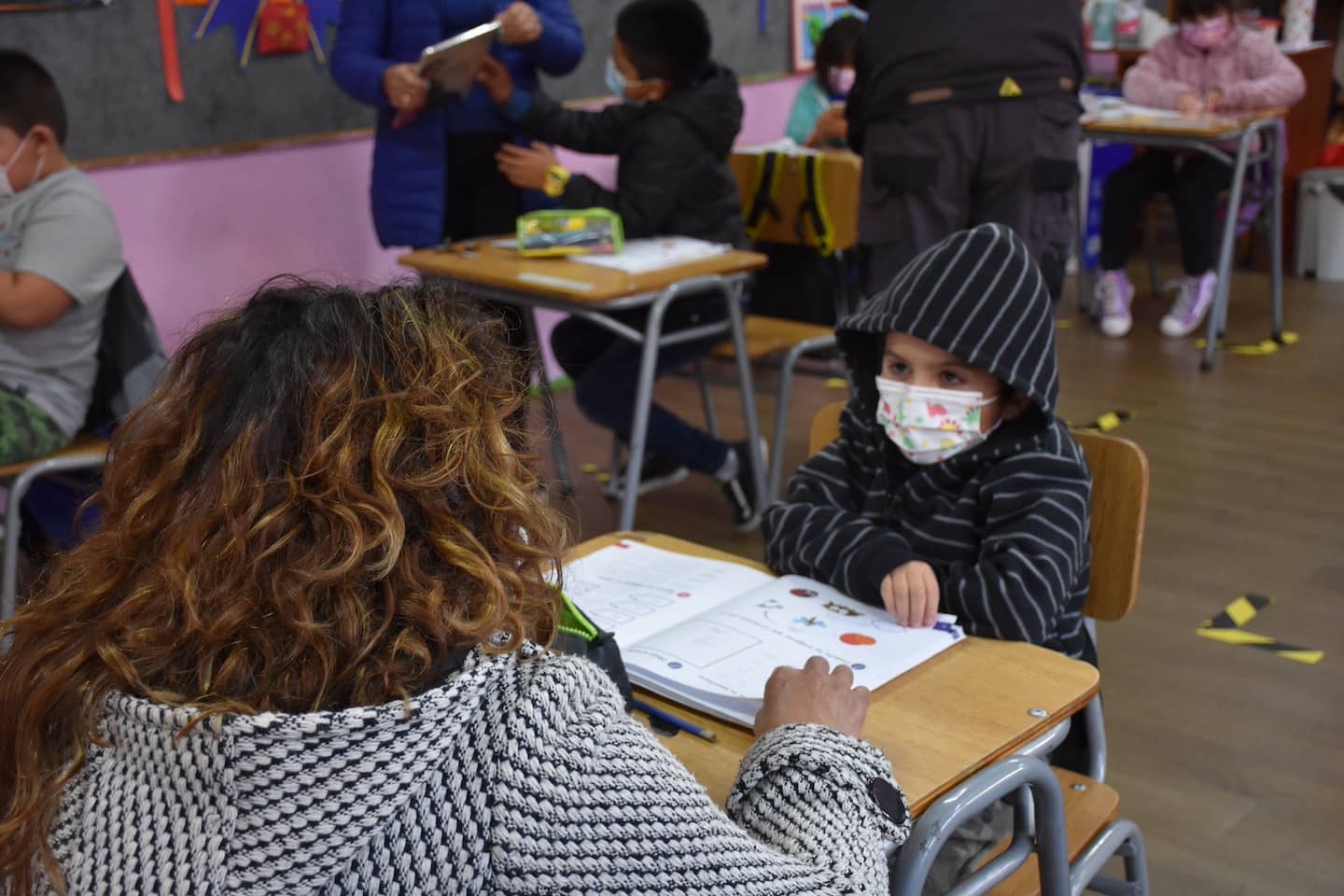
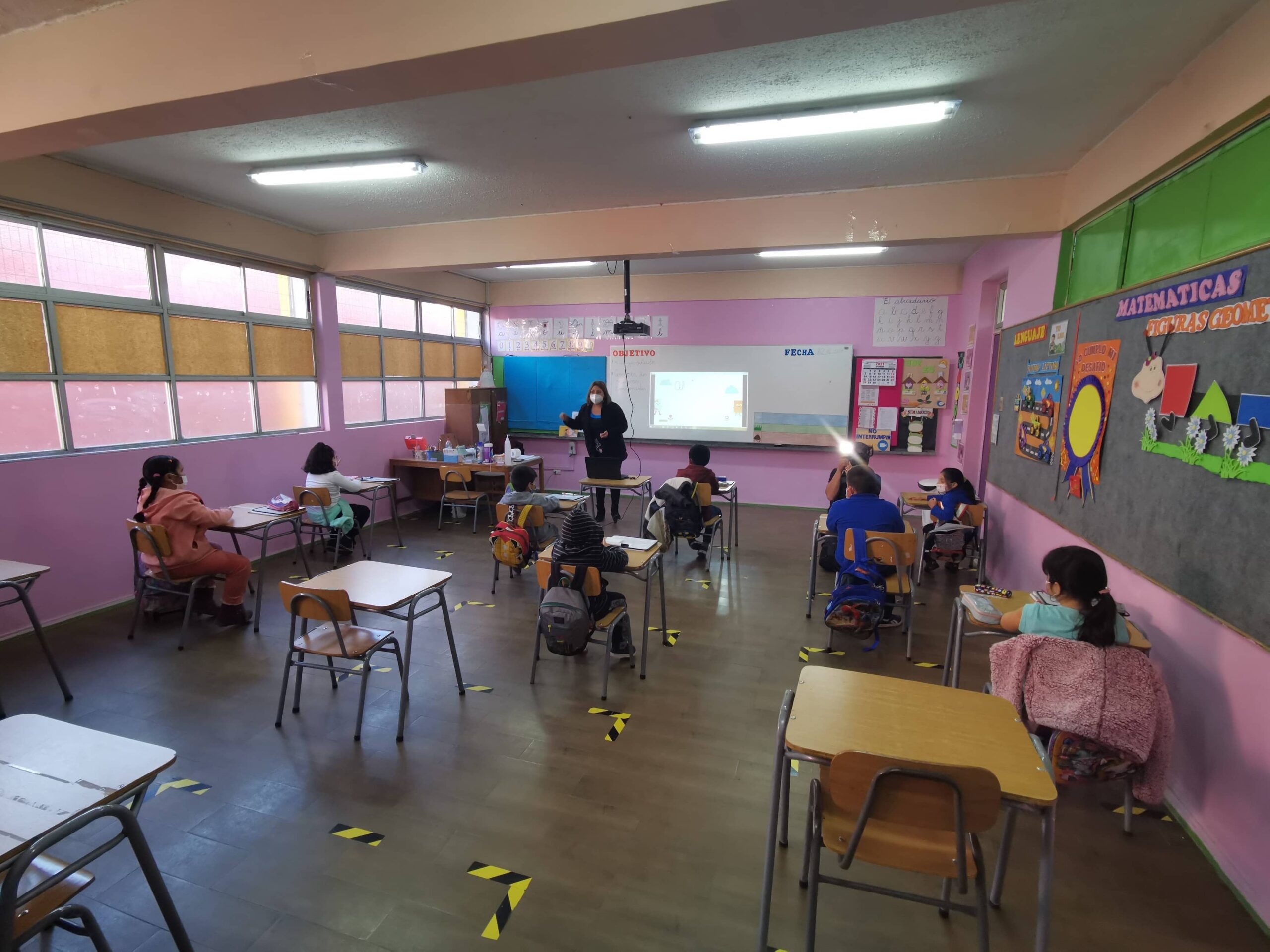
Along with the implementation of Alfadeca, a Corporate Volunteering space was integrated, where CMP workers accompany students from the aforementioned educational establishments in the reading of stories. Likewise, Compañía Minera del Pacífico, through its Social and Human Development Superintendence, gave the students of the 1st grade of the Alejandro Noemi Huerta school in Freirina copies of the book 'Añañuca'. The contribution was made with the aim of encouraging their first steps in reading, thus contributing to Alfadeca's methodology and the beginning of Corporate Volunteering.
It is worth mentioning that within the framework of the alliance, support material has been provided to teachers, classroom teams and students, and spaces for teacher training and support have been created, such as the meeting with the specialist Neva Milicic in April last year.
Corporate volunteering
In April 2021, Compañía Minera del Pacífico started its Corporate Volunteering program, whose main objective is to encourage the participation of CMP workers, so that through their talents they can contribute to the social and human development of people, with a special focus on the needs of the territory.
Since then, different workshops have been held with educational and neighborhood communities in the communities where the company is present, namely Caldera, Copiapó, Tierra Amarilla, Vallenar, Freirina, Huasco, La Higuera, La Serena and Coquimbo.
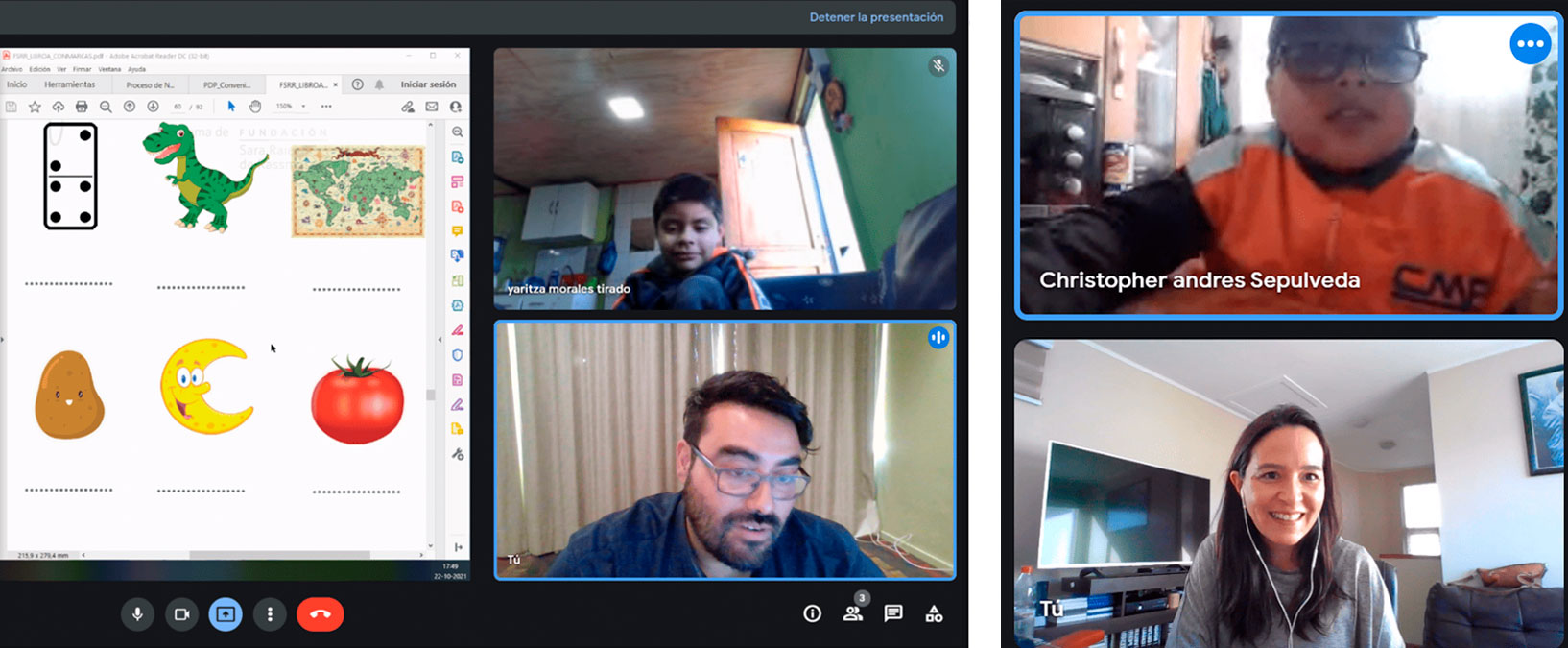
Characteristics of volunteerism
A Corporate Volunteer Program (CVP) considers volunteer and personal commitment activities carried out by employees in an organized manner, in a structured framework and with the support of the Company, unpaid and for the benefit of the territory.
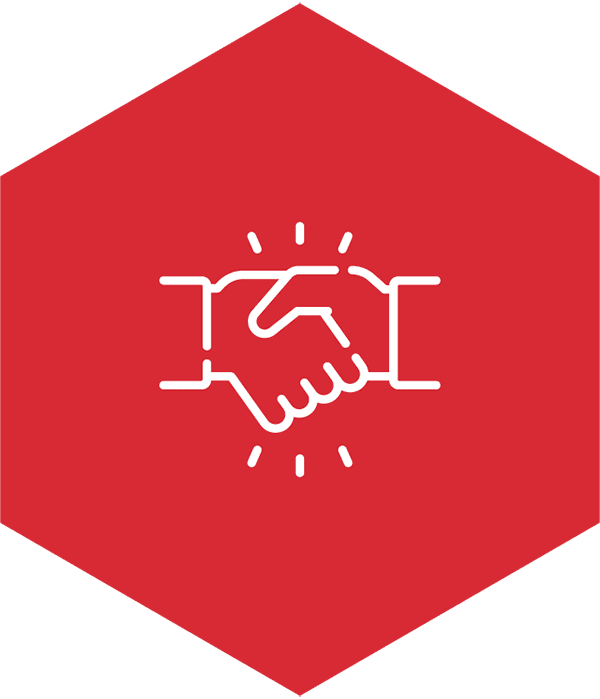
GRATITUDE

DESIRE TO TRANSFORM THE WORLD
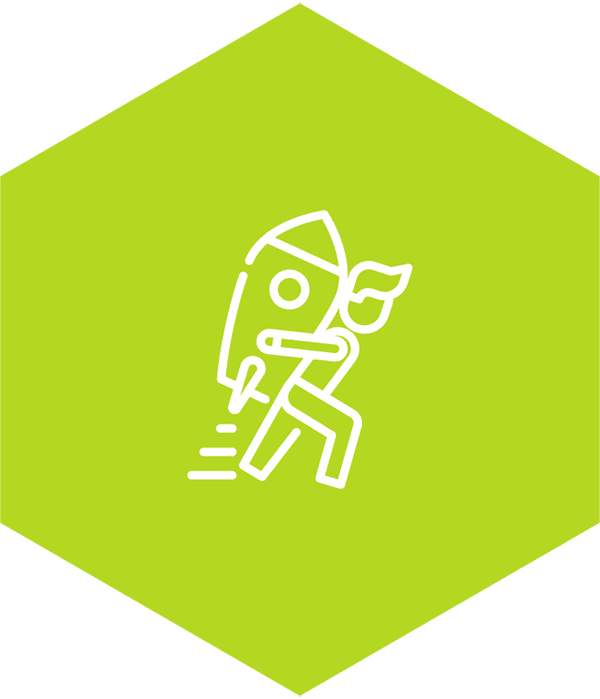
RESPONSIBILITY AND PERSEVERANCE
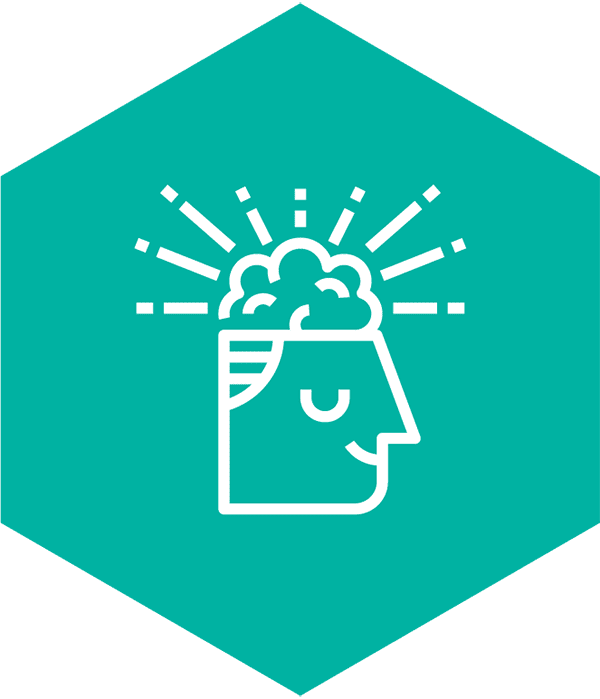
PERSONAL CHANGE
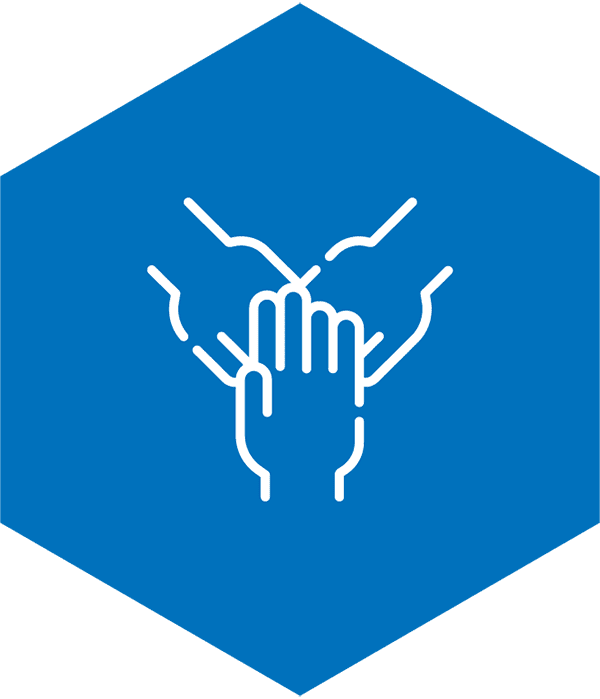
SOLIDARITY
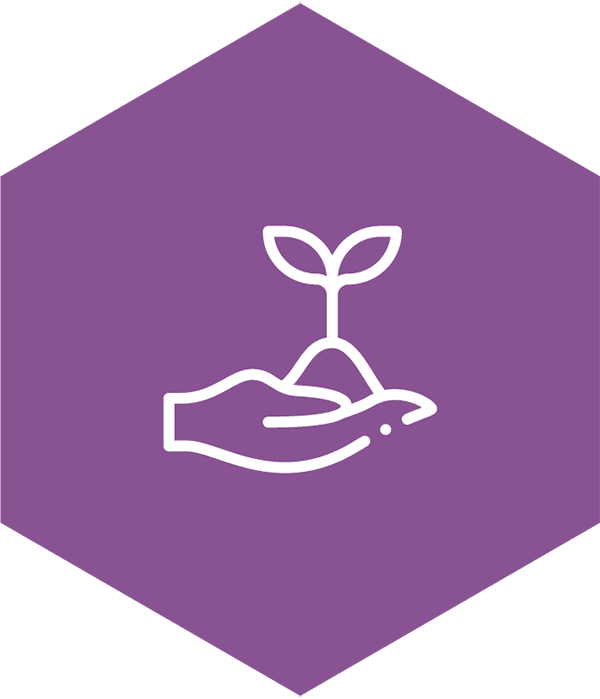
AMABILITY
PVC brings the following benefits
A Corporate Volunteer Program (CVP) is a way to contribute effectively to the processes, to the territory and to the participants themselves.
You give and learn from others
Active mind
Ganas Experience
Personal bonus
Connect with others
You increase your well-being
You make the difference
You develop your talents
You channel your spirit of solidarity
Manual
- PHASE 1 Planning
- PHASE 2 Identify risks and opportunities
- PHASE 3 Training
- PHASE 4 Execution
- PHASE 5 Verification
- PHASE 6 Learning and Progress Evaluation
OBJECTIVES OF THIS PHASE
Identify personal purpose for the role of volunteer. Realize my volunteer virtuous circle.
Review the background of the participants of the territory.
Something you like to do
Before meeting with the participants of the territory, we invite you to discover "YOUR PURPOSE" as a volunteer which is composed of what you like to do + what you are good at + what improves the lives of other people so that you can deliver your best version and contribute to the change of other people.
TASK 1
We invite you to reflect and answer the following questions
Something you are good at
Something that makes other people's lives better
WHAT DO YOU LIKE TO DO? WHAT IS IT THAT YOU DO THAT THE HOURS FLY BY?
WHAT ARE YOU GOOD AT?
We all have something we are good at, it is not pride, it is self-knowledge. Be honest with yourself and discover what your talents are.
WHAT COMES NATURALLY TO YOU THAT WOULD IMPROVE THE LIVES OF OTHERS?
Now we'll address what you like, what you're good at, but also what you bring to the territory. territory.
IN SHORT...
I AM INTERESTED IN VOLUNTEERING BECAUSE:
HOW CAN MY PURPOSE CONTRIBUTE TO IMPROVING THE LIVES OF OTHERS?
BACKGROUND CHECK OF PARTICIPANTS FROM THE TERRITORY
Once you are assigned or start your volunteer project, it is necessary to conduct a background check of the participants in the territory, which will allow you to learn about them and inquire about their needs in order to further articulate your volunteer project. to learn about them and inquire about their needs in order to further articulate your volunteer project.
TASK No. 2
Complete the following table on the recipients
BACKGROUND INFORMATION THAT CAUGHT MY ATTENTION
BACKGROUND INFORMATION I HAVE YET TO KNOW
To create the basis for a relationship of trust between volunteers and participants of the territory. Generate the appropriate context.
Define expectations and objectives for the volunteer project.
BUILDING TRUST
To build trust in a relationship between volunteers and participants of the territory, it is not enough to ask questions to get to know them well, but it is also relevant to share those personal/professional aspects of your own story that may be relevant to the participants of the project.
Below you will find a series of questions that you can incorporate into the conversation.
We suggest that you first answer them individually, and then choose what you would like to share with the participants in the first activity.
REFLECTION
WHAT MOTIVATES ME TO BE A VOLUNTEER?
WHAT LEARNING COULD BE BENEFICIAL NOW AND IN WHAT WAYS HAS IT CHANGED ME AS A PERSON?
GENERATING THE APPROPRIATE CONTEXT
One way to generate a close context is to demonstrate a genuine interest in getting to know the participants in the territory: who they are, what their history is, what motivates them to participate in the project, among other things.
We recommend that you read this series of questions beforehand and choose the ones that will be most useful for your first meeting with them. the first meeting with them:
REFLECTION
WHAT MOTIVATES YOU MOST ABOUT THE VOLUNTEER PROJECT?
WHAT ARE YOUR SHORT TERM GOALS, WHAT ARE YOUR LONG TERM GOALS?
WHAT ARE YOUR INTERESTS AND HOBBIES?
DEFINING EXPECTATIONS AND OPERATING STANDARDS
For a volunteer project to be successful, it is important that in the first activity, volunteers and participants discuss their expectations about the role they are going to play, in order to define the framework and limits of the project.
Question to the volunteer
FOR YOU, WHAT WOULD BE THE SUCCESS INDICATORS OF THIS VOLUNTEER PROJECT?
Questions to participants
WHAT DO YOU EXPECT FROM MY ROLE AS A VOLUNTEER?
WHAT DO YOU HOPE TO ACHIEVE THROUGH THIS PROJECT?
Once the expectations have been agreed upon, it is necessary to establish certain operating rules that both volunteers and participants agree to respect and care for:
Honesty.
Learning space for volunteers and participants.
Fulfillment of agreements and completion of proposed activities.
Feedback as a form of constant evaluation of the project's progress.
OBJECTIVES OF THIS PHASE
Identify project development focuses.
VOLUNTEER PROJECT DEVELOPMENT FOCUS
A successful project is articulated around the learning challenges that the volunteer is able to specify with the participants in the territory.
Below, we propose a series of questions and topics of conversation that will help participants reflect on their key learning spaces.
REFLECTION
WHAT ARE THE WEAKEST ASPECTS THAT YOU WOULD LIKE TO FOCUS ON DURING THE VOLUNTEER PROJECT?
WHAT DO YOU NEED TO EMPOWER TO ACHIEVE YOUR MOST IMPORTANT GOALS IN LIFE (PERSONAL, PROFESSIONAL, ETC.)? IMPORTANT GOALS IN LIFE (PERSONAL, PROFESSIONAL, ETC.)?
OBJECTIVES OF THIS PHASE
EXECUTION
OF THE VOLUNTEER PROJECT.
Structuring the volunteer project in order to put it into action.
Volunteer, you have arrived here with clarity about your motivation, knowledge of the participants in the territory, skills, talents and the purpose that motivates you to volunteer, it is time to start structuring your volunteer project to put it into action. into action.
TASK 3
To develop your volunteer project you must:
Identify hazards
Assess risks
Apply controls
Execute processes flawlessly Verify
Learn
We recommend you to reflect and answer the following questions powerful questions
WHAT EXACTLY DO I WANT TO DO?
WHAT ARE MY CONDITIONS?
WHAT COULD GO WRONG?
HOW DO WE CONTROL IT?
The following questions will help you design your volunteer project.
VOLUNTEER SUPPORT MANUAL
TASK N° 4
|
PROJECT COMPONENT |
GUIDING QUESTION |
Name and nature of the project Rationale Target Audience and Location Objectives Activity Plan Responsible Parties Time Schedule
Human resources, budget, technological resources
What do we want to do?
Why do we want to do it?
For whom and where?
What do we want to carry out the project for? How will we carry it out?
Who will carry it out?
When?
What resources will be necessary to carry out the activities that will allow the project to be developed?
How will we measure results? BUT, THE MOST IMPORTANT THING IS "TO GIVE YOUR HEART AND DESIRE"....
Spread your enthusiasm to the participants of the territory, what you will receive will surely be even more rewarding than what you deliver.
OBJECTIVES OF THIS PHASE
Evaluate the progress of the project in its development objectives.
At this stage of the project, it is time to reflect on the results obtained so far. Monitoring the state of progress is key for participants in the territory to draw significant learning lessons during the project.
Participants may discover during this stage that the situation or their needs have changed and, accordingly, they may need to update their learning focus.
It may also be the case that participants have achieved a learning objective in a shorter period of time than anticipated. If this is the case, they should re-examine where they are in terms of progress, and perhaps identify a new focus for development.
In any case, the following questions will help them to diagnose the state of progress.
REFLECTION
HOW DO YOU FEEL ABOUT THE PROGRESS YOU HAVE MADE SO FAR, AND IS IT CLOSE TO WHAT YOU EXPECTED?
WHAT OTHER NEW AREAS OF DEVELOPMENT WOULD BE IMPORTANT FOR YOU TO WORK ON NOW?
IS THERE ANYTHING ELSE YOU NEED FROM ME THAT I CAN HELP YOU WITH?
Mid-term evaluation survey
As a volunteer, it is key to the success of your project to monitor the progress of your project by measuring the perceptions, learning and future growth of the participants, which will allow you to correct or reinforce those aspects that are important to review to ensure the successful development of the project.
Has the volunteer project helped me to improve my knowledge, competencies and skills?
Is the time I have spent participating in this project worthwhile?
Would you choose another professional profile as a volunteer to volunteer to obtain the knowledge and skills?
Are my expectations for this volunteer project being met?
Are the objectives that were set for this project are they progressing well/are they being met? (YES/NO)
12345 VERY MUCH IN NEITHER AGREE NOR AGREE AGREE VERY MUCH AGREE
DISAGREE DISAGREE NEITHER DISAGREE NOR DISAGREE AGREE
12345 VERY MUCH IN NEITHER AGREE NOR AGREE AGREE VERY MUCH AGREE
DISAGREE DISAGREE NEITHER DISAGREE NOR DISAGREE AGREE
12345 VERY MUCH IN NEITHER AGREE NOR AGREE AGREE VERY MUCH AGREE
DISAGREE DISAGREE NEITHER DISAGREE NOR DISAGREE AGREE
12345
STRONGLY AGREE NEITHER AGREE AGREE DISAGREE DISAGREE DISAGREE NEITHER DISAGREE DISAGREE
STRONGLY AGREE
12345
STRONGLY DISAGREE NEITHER AGREE DISAGREE NEITHER DISAGREE NOR DISAGREE
AGREED
STRONGLY AGREE
Send a copy of this document to the Project Leader
at the following e-mail: cmpdesarrollosocial@cmp.cl
OBJECTIVES OF THIS PHASE
Conduct a final evaluation of the progress of the volunteer project in terms of the developmental foci development.
Articulate project closure conversations with participants, allowing them to identify the most important events that marked the project, reflect on what they learned, thank each other and celebrate.
Evaluation of learning and progress
An indispensable part of the project closure process is to articulate final learning conversations that focus on the project's main conclusions and specific lessons learned.
In your role as a volunteer, it is important that you reflect with the participants on whether and how the objectives were achieved.
REFLECTION
WHAT ARE THE MAIN LESSONS LEARNED FROM THE EXPERIENCE?
HOW DID YOUR MOTIVATION, PURPOSE, SKILLS AND TALENTS ALIGN TO CONTRIBUTE TO THE DEVELOPMENT OF THE PROJECT?
WHAT STRENGTHS AS A VOLUNTEER WERE BROUGHT INTO PLAY?
DID PARTICIPATING IN THIS PROJECT HAVE A SIGNIFICANT IMPACT ON MY LIFE AND OTHERS, AND WOULD I REPLICATE IT AGAIN?
29
VOLUNTEER SUPPORT MANUAL
CHALLENGES AHEAD FOR PARTICIPANTS
WHAT THINGS DO THEY STILL NEED TO LEARN/PRACTICE/IMPLEMENT?
WHAT SUPPORT NETWORK DO THEY HAVE, DO THEY NEED TO STRENGTHEN THEIR NETWORK OR SEEK SUPPORT?- DO THEY NEED TO STRENGTHEN THEIR NETWORK OR SEEK ADDITIONAL SUPPORT TO MOVE FORWARD?
30
 Copiapó Valley
Copiapó Valley Cerro Negro Norte Mine
Cerro Negro Norte Mine Magnetite Plant
Magnetite Plant Puerto Punta Totoralillo
Puerto Punta Totoralillo Huasco Valley
Huasco Valley Los Colorados Mine
Los Colorados Mine Pellet Plant
Pellet Plant Puerto Guacolda II
Puerto Guacolda II Elqui Valley
Elqui Valley El Romeral Mines
El Romeral Mines Pleito Mine
Pleito Mine Puerto Guayacán
Puerto Guayacán